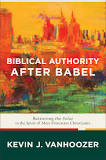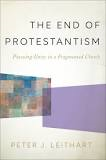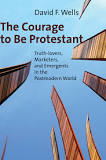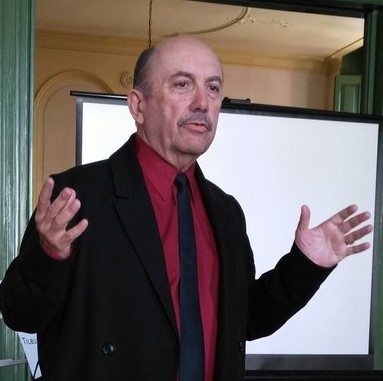How is the quincentennial anniversary in 2017 of the Protestant Reformation and the subsequent Catholic Reform being remembered in the U.S.A.? Personally speaking, evidence that it is being remembered in a variety of ways is found in the several remembrances to which I have been invited to participate. With the aim of ecumenical reconciliation, which is the restoration of unity among all Christians, it is being remembered through ecclesial repentance, involving an examination of conscience for taking mutual responsibility for the division among Christians; spiritual re-orientation, recognizing that we are brothers and sisters in Christ, who have a common cause in the Gospel, and, last but not least, theological re-thinking.
Theological re-thinking
Especially the latter, theological re-thinking of fundamental theological topics, which has been ongoing for a half-century, is indispensable, having made impressive gains over the decades (see Walter Cardinal Kasper, Harvesting the Fruits, 2009). Its indispensability derives from a fundamental commitment to seeking the truth, driving us to an ever deeper understanding of the Christian faith. Relinquishing theological re-thinking runs the risk of an easy reconciliation, reconciliation without repentance, a false irenicism, as the Decree on Ecumenism/Unitatis Redintegratio calls it (no. 11), thinning down Catholic doctrine, abandoning theological work, relegating it to a mere academic exercise, and hence losing the importance of distinguishing between truth and error—all of which would mean that our ecumenical efforts would fall short of true ecumenism. Indeed, Pope Saint John Paul II states in his 1995 Encyclical Letter, That They May be One/Ut Unum Sint:
The unity willed by God can be attained only by the adherence of all to the content of revealed faith in its entirety. In matters of faith, compromise is in contradiction with God who is Truth. In the Body of Christ, “the way, and the truth, and the life” (Jn 14:6), who would consider legitimate a reconciliation brought about at the expense of truth? (no. 18)
Evangelicals and Catholics Together (ECT)
A representative approach to the quincentennial anniversary of the Protestant Reformation and subsequent Catholic Reform is taken by the ecumenical alliance, now almost 25 years old, of Evangelicals and Catholics Together (ECT), of which I am a member. ECT was founded by Catholic intellectual and priest Richard John Neuhaus and Baptist Charles Colson, the founder of Prison Fellowship. As Catholic and Evangelical theologians (Lutherans, Reformed, and Baptists), the goal of ECT is to advance unity and fellowship among Christians by fostering a serious dialogue of a theological re-thinking of contested topics that have traditionally divided Christians. The members of ECT have learned much from one another and, in turn, have deepened our joint commitment to biblical and doctrinal truth.
This collaboration has produced ecumenically rich and theologically substantive statements on, for example, the Trinitarian and Christological foundations of the common faith we share; scripture and tradition; justification and sanctification, the call to holiness; the gospel of life, religious liberty, and Mary’s place in the plan of salvation and the communion of saints. See the 2015 book edited by Timothy George and Thomas G. Guarino, Evangelicals and Catholics Together at Twenty: Vital Statements on Contested Topics (Brazos Press). Most recently, we have produced a statement expressing our common conviction about reclaiming marriage as the two-in-one flesh union of a man and woman (https://ecumenism.net/archive/docu/2015_ect_two-shall-become-one-flesh.php); and there is also the forthcoming statement on “The Christian Way” that will be published in the fall in the ecumenical journal, First Things.
The members of ECT are committed to the project of deeply pondering issues of faith, meaning, truth, and language. They are receptive ecumenists meaning thereby that ecumenical “dialogue is not simply an exchange of ideas. In some way it is always an ‘exchange of gifts’. A dialogue of love” (John Paul II, Ut Unum Sint, no. 28).
One should say of ECT that it “engages in a fresh constructive and critical evaluation both of the contemporary teaching and practice of the Roman Catholic Church and of the classical controverted issues” (“Towards a Common Understanding of the Church,” in Deepening Communion, International Ecumenical Documents with Roman Catholic Participation, William G. Rusch and Jeffrey Gros [Washington, DC: USCC, 1998]).
Other perspectives
In addition to ECT’s approach to ecumenism, there are two other attitudes among Evangelical Christians that are representative of ecumenical approaches in the US: “[1] some . . . remain to be convinced that the modern developments of the Roman Catholic Church has really addressed the issues of the reformation, and [2] others . . . have been largely untouched by the ecumenical exchanges of recent times and have therefore not been challenged or encouraged to reconsider their traditional stance” (Ibid).
Three recent major studies show these last two ecumenical approaches.
Creative retrieval
 One, Kevin Vanhoozer, Biblical Authority after Babel, Retrieving the Solas in the Spirit of Mere Protestant Christianity (2016), is, arguably, a form of retrieval theology, meaning thereby a “mode or style of theological discernment that looks back [to authoritative sources of faith] in order to move forward.” As Vanhoozer correctly states, “Ressourcement describes a return to authoritative sources for the sake of revitalizing the present.” Indeed, adds Vanhoozer, “we ought not to confuse retrieval with either retrenchment or repristination.” Rather, “the main purpose of retrieval is the revitalization of biblical interpretation, theology, and the church today. To retrieve is to look back creatively in order to move forward faithfully.” I believe that hermeneutics of creative retrieval is of ecumenical significance. Unfortunately, Vanhoozer, unlike the Dutch master of dogmatic and ecumenical theology, G.C. Berkouwer (1903-1996), doesn’t recognize its ecumenical potentiality.
One, Kevin Vanhoozer, Biblical Authority after Babel, Retrieving the Solas in the Spirit of Mere Protestant Christianity (2016), is, arguably, a form of retrieval theology, meaning thereby a “mode or style of theological discernment that looks back [to authoritative sources of faith] in order to move forward.” As Vanhoozer correctly states, “Ressourcement describes a return to authoritative sources for the sake of revitalizing the present.” Indeed, adds Vanhoozer, “we ought not to confuse retrieval with either retrenchment or repristination.” Rather, “the main purpose of retrieval is the revitalization of biblical interpretation, theology, and the church today. To retrieve is to look back creatively in order to move forward faithfully.” I believe that hermeneutics of creative retrieval is of ecumenical significance. Unfortunately, Vanhoozer, unlike the Dutch master of dogmatic and ecumenical theology, G.C. Berkouwer (1903-1996), doesn’t recognize its ecumenical potentiality.
Ressourcement, or creative retrieval, is at the root of John XXIII’s project expressed by him in his opening address to Vatican II, Gaudet Mater Ecclesia: “The deposit or the truths of faith, contained in our sacred teaching, are one thing, while the mode in which they are enunciated, keeping the same meaning and the same judgment [‘eodem sensu eademque sententia’], is another thing.” The subordinate clause in this passage is part of a larger passage from Vatican I, Dei Filius (Denzinger, no. 3020), and this passage is itself from the Commonitorium primum 23.3 of Vincent of Lérins: “Therefore, let there be growth and abundant progress in understanding, knowledge, and wisdom, in each and all, in individuals and in the whole Church, at all times and in the progress of ages, but only with the proper limits, i.e., within the same dogma, the same meaning, the same judgment.”
Significantly, normative Catholicism has been Lérinian on this very point since Vatican I, through Vatican II and post-conciliar interpretations of doctrine – and hence anti-historicist. Vincent already saw this clearly in the early fifth century – doctrine can develop, but cannot change its fundamental meaning, i.e., the realistic meaning embedded in the dogmas themselves. Lérinian hermeneutics has ecumenical significance. As John Paul II explains in Ut Unun Sint, no. 38:
In dialogue, one inevitably comes up against the problem of the different formulations whereby doctrine is expressed in the various Churches and Ecclesial Communities. This has more than one consequence for the work of ecumenism. In the first place, with regard to doctrinal formulations which differ from those normally in use in the community to which one belongs, it is certainly right to determine whether the words involved say the same thing. . . . In this regard, ecumenical dialogue, which prompts the parties involved to question each other, to understand each other and to explain their positions to each other, makes surprising discoveries possible. Intolerant polemics and controversies have made incompatible assertions out of what was really the result of two different [but complimentary] ways of looking at the same reality. Nowadays we need to find the formula which, by capturing the reality in its entirety, will enable us to move beyond partial readings and eliminate false interpretations.
 Hence, as the Decree on Ecumenism discerned: “It is hardly surprising, then, if from time to time one tradition has come nearer to a full appreciation of some aspects of a mystery of revelation than the other, or has expressed it to better advantage. In such cases, these various theological expressions are to be considered often as mutually complementary rather than conflicting (no. 17).
Hence, as the Decree on Ecumenism discerned: “It is hardly surprising, then, if from time to time one tradition has come nearer to a full appreciation of some aspects of a mystery of revelation than the other, or has expressed it to better advantage. In such cases, these various theological expressions are to be considered often as mutually complementary rather than conflicting (no. 17).
Reformational Catholicism
Furthermore, we have Peter J. Leithart, The End of Protestantism, Pursuing Unity in a Fragmented Church (2016), who argues that faithfulness to Christ (John 17: 21-23) and the gospel demands the visible unity of all Christians. The Church is the new and reborn humanity in Christ and by its very nature is one, here and now, with unity belonging to the Church’s being. In this light, Leithart sees the divided churches of denominationalism under the judgment of Christ, and hence calls for the demise of denominationalism and the birth of “Reformational Catholicism.” In sum, says Leithart, “The Reformation was a retrieval, not a rejection, of catholicity.” He adds, “It was an effort not to destroy Catholicism but to restore it.” Leithart is an accidental Protestant.
Protestant versus Catholic self-identification
 Finally, unlike Leithart, David F. Wells, The Courage to Be Protestant, Reformation Faith in Today’s World (2008), still exhibits the traits of being an essential Protestant. He still sees himself in a Protestant-versus-Catholic self-identification such that Catholicism is the other.
Finally, unlike Leithart, David F. Wells, The Courage to Be Protestant, Reformation Faith in Today’s World (2008), still exhibits the traits of being an essential Protestant. He still sees himself in a Protestant-versus-Catholic self-identification such that Catholicism is the other.
All of these ecumenical styles are at work in the U.S.A. The most important style in this quincentennial remembrance of the Reformation and subsequent Catholic Reform is the theological re-thinking of fundamental theological topics. For “authentic ecumenism is a gift at the service of truth” (Ut Unum Sint, no. 38). Anything else falls short of true ecumenism.

